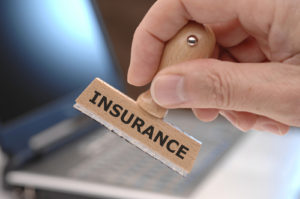 Courtesy of iii.org
Courtesy of iii.org
When purchasing an auto policy, it’s important to understand the factors that affect your policy costs and coverage. Unfortunately, there’s a lot of bad information that passes for “common wisdom”—here, we separate myth from facts about car insurance.
Myth 1 – Color determines the price of auto insurance
It doesn’t matter whether your car is “Arrest Me Red” or “Hide In Plain Sight White”—the color doesn’t actually factor into your auto insurance costs. The price of your auto policy is based on many factors, such as car make, model, body type, engine size and the age of the vehicle, as well as the car’s sticker price, the cost to repair it, its overall safety record and the likelihood of theft. Insurers also take into account the age, driving record and sometimes the credit history of the driver.
Myth 2 – It costs more to insure your car when you get older
Quite the opposite, in fact—older drivers may be eligible for special discounts. For example, those over 55 years of age can get a reduction in their auto insurance premium if they successfully complete an accident prevention course (available through local and state agencies as well as through the AAA and AARP). Retirees or those who aren’t employed full time—and therefore, who are driving less—may also be eligible for a car insurance discount. Older driver programs and discounts vary by state and insurance carrier and driver age, so if you think you may qualify, check with your insurance professional.
Myth 3 – Your credit has no effect on your insurance rate
Your credit-based insurance score—which is derived from your credit history—may matter. A good credit score demonstrates how well you manage your financial affairs and has been shown to be a good predictor of whether someone is more likely to file an insurance claim so many insurance companies take it into consideration when you want to purchase, change or renew your auto insurance coverage. People with good credit—and, therefore good insurance scores—often end up paying less for insurance.
Myth 4 – Your insurance will cover you if your car is stolen, vandalized or damaged by falling tree limbs, hail, flood or fire
This is only true if you opt for comprehensive and collision coverage along with your standard policy. If a car is worth less than $1,000, or less than 10 times the insurance premium, purchasing these coverages may not be cost effective—but you do need to have collision and comprehensive insurance to fully protect your vehicle from all types of damage.
Myth 5 – You only need the minimum amount of auto liability insurance required by law
Almost every state requires you to buy a minimum amount of auto liability coverage but buying only the minimum amount of liability means you are likely to pay more out-of-pocket for losses incurred after an accident—and those costs may be steep. The insurance industry and consumer groups generally recommend a minimum of $100,000 of bodily injury protection per person and $300,000 per accident. If you have substantial personal financial assets to protect in the event of a lawsuit, you may even want to consider an umbrella liability policy.
Myth 6 – If another person drives your car, in the event of accident, his or her auto insurance will cover the damages
In most states, the auto insurance policy covering the vehicle is considered the primary insurance. This means that the car owner’s insurance company must pay for damages caused by an accident, regardless of who is driving. Policies and laws differ by state, so make sure you understand the rules before allowing another person to drive your car.
Myth 7 – Soldiers pay more for insurance than civilians
If you are in the military—regardless of which branch—you actually qualify for a discount on auto insurance. You’ll need to supply documentation that lists your name, rank and the time that you will be enlisted in the service (in some situations, you might be able to have your commanding officer make a phone call on your behalf). Shop around—some auto insurance companies provide discounts for former members of the military, as well as their families.
<
Myth 8 – Personal auto insurance also covers business use of your car
If you are self-employed and use your vehicle for business purposes, personal auto insurance may not protect you so it’s important to purchase business vehicle insurance. If you have other people—such as employees—using your vehicle, regularly check their driving records.



